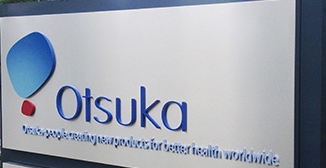Otsuka is buying up Avanir Pharmaceuticals for $3.5 billion. Reuters reports that the move will insulate the Japanese company from an anticipated sales dive when its antipsychotic Abilify goes off patent in April. The drug accounted for around 40% of Otsuka’s earnings for the last fiscal year. Adding Avanir to its holdings will give the company Nuedexta, which is designed to treat a disorder Reuters describes as being “characterized by involuntary outbursts of crying or laughter.”
ICYMI: The New York Times reported Monday that a group of hackers dubbed “Fin4” are targeting publicly traded pharmaceutical companies’ information to gain an advantage in stock markets, citing a cyber security report from company FireEye. The attackers use advanced phishing email techniques which are “precisely tailored toward each victim, written in flawless English and carefully worded to sound as if they were sent by someone with an extensive background in investment banking,” the newspaper wrote. The e-mails aim to lure victims to click on links that claim to be an “employee’s negative rants about the executive in an investment forum,” and then are redirected to a landing page designed to steal their login information. FireEye would not name victims, only saying they were all publicly listed on the NYSE and Nasdaq exchanges.
A component of this summer’s GSK-Novartis deal hinges on a nicotine patch. The Federal Trade Commission said in a November 26 letter that the two companies can go ahead with their joint consumer business operation if Novartis gives up its nicotine replacement patch, Habitrol. The regulator said cutting this out of the portfolio is essential if the market is to remain competitive. It also allows GSK, which will control the joint venture, to hang onto its OTC patch, Nicoderm CQ. The FTC says the divestiture is essential because these two companies make the only branded nicotine patches on the US market, as well as double as two of the three suppliers of private-label patches.
Regeneron has six months until it finds out if the FDA will expand Eylea’s indication to include diabetic retinopathy for patients with diabetic macular edema. The priority review status gives the FDA a March 30 deadline to decide. The injected eye drug is currently indicated for wet age-related macular degeneration, macular edema following retinal vein occlusion and diabetic macular edema.
FDA has approved a combination of Sanofi’s Priftin with antimycobacterial isoniazid for treating latent tuberculosis following a priority review, Reuters reported Tuesday. Priftin was first approved in 1998 and is only available in the United States. Sanofi stated its exploring approval of the combo treatment in other countries.








